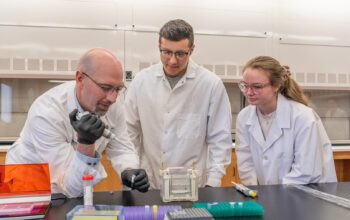Selecting a program that is the right fit involves careful consideration of various aspects to ensure it falls in line with your career aims and preferences. Pursuing a regenerative medicine phd programs is an important step for people wanting to progress further within this constantly changing field Continuing to adapt regenerative medicine a cluster of innovative therapies, aimed at repairing or replacing damaged tissue and organs.
-
Curriculum and Specializations Program
Seek out programs that provide an extensive curriculum in these core areas. Moreover, most programs offer the possibility of studying specific subfields like stem cell biology, biomaterials or gene editing. Make sure the areas of concentration within a program are in line with you career goals and what you’re actually interested in researching.
-
Expertise and Opportunities for Research & Teaching
Faculty is the heart of faculty in a graduate program. Research the faculties, their interests and accomplishments in regenerative medicine. A program with leading faculty can provide you invaluable mentorship and research, as well. Doing cutting-edge research and having experienced mentors can make a big difference in your learning experience or future career prospects.
-
Facilities and Resources for Research
For training in regenerative medicine, hands-on exposure and experiential learning depend on advanced research facilities as well as resources. Find programs that offer state-of-the-art labs, advanced equipment and research centers. We need adequate resources to conduct the kind of high-quality research required and also in order that our members can practice skills which are relevant.

-
Program Accreditation and Reputation
One other important factor is the prestige of both the program and the institution. It is important that the program be accredited by appropriate educational and professional organizations to ensure a standard of excellence. A reputed course can improve your resume and help you increase the number of career advancements in front of you.
-
Professional Development and Job Hunting
This can literally shape your career planning and decide what you are going to be once you graduate. Industry conferences, seminars and collaborations with research institutions attract potential customers and are equally beneficial as networking opportunities. Those networks are very important for the new job recommendations and career advancement in the same field.
A career in the regenerative medicine is not something that should be taken lightly and invites those considering pursuing a regenerative medicine phd programs to take into serious consideration of certain elements. You can research the curriculum, quality of faculty members, sort of research facilities provided to you and rank/profiling about those programs, career support from school etc.




